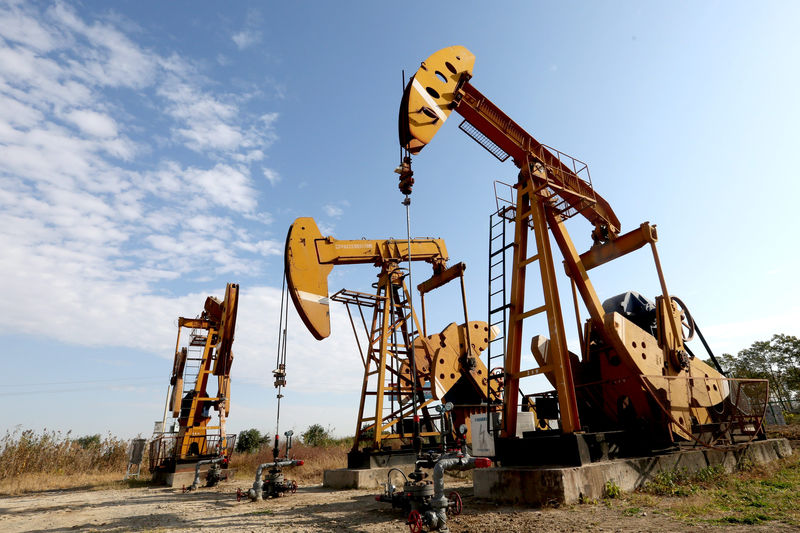By Florence Tan
SINGAPORE (Reuters) -Oil prices fell further on Monday amid signs of weak fuel demand and after comments from U.S. Federal Reserve officials dampened hopes for interest rate cuts that could slow growth and curb energy consumption in the world’s largest could limit the world’s economy.
futures fell 7 cents, or 0.1%, to $82.72 a barrel by 0624 GMT, while U.S. West Texas Intermediate crude futures were at $78.21 a barrel, down 5 cents.
“Oil markets ignored the impact of conflict in the Middle East and shifted their focus back to the global economic outlook,” said Auckland-based independent analyst Tina Teng.
China’s producer price index (PPI) contracted in April, indicating business demand remained weak, she said, adding that recent US economic data also indicated a slowdown.
Both benchmarks settled about $1 lower on Friday as Fed officials debated whether U.S. interest rates are high enough to push inflation back to 2%, offsetting gains earlier last week on concerns about supply disruptions as consequence of the Israeli-Gaza conflict.
Analysts expect the US central bank to keep its policy interest rate at current levels for longer, which will support the dollar. A stronger dollar makes dollar-denominated oil more expensive for investors who hold other currencies.
Oil prices also fell on signs of weak demand, ANZ analysts said in a note, as US gasoline and distillate inventories rose in the week ahead of the start of the US driving season.
Refineries worldwide are struggling with declining diesel profits as new refineries increase supply and mild Northern Hemisphere weather and sluggish economic activity hit demand.
Remove ads
.
Still, the market remained buoyed by expectations that the Organization of the Petroleum Exporting Countries and their allies, collectively known as OPEC+, could continue supply cuts into the second half of the year.
Iraq, OPEC’s second-largest producer, has committed to voluntary oil production cuts agreed by OPEC and is eager to work with member states in efforts to achieve greater stability in global oil markets, the oil minister told Sunday the state news agency.
The minister’s comments followed his suggestion on Saturday that Iraq had made sufficient voluntary cuts and would not agree to any additional cuts proposed by the broader OPEC+ producer group at its meeting in early June.
Earlier this month, OPEC+ called out Iraq for inflating its production quotas by a total of 602,000 barrels per day in the first three months of 2024. The group said Baghdad had agreed to compensate with additional production cuts for the rest of the year.
“Iraq has not met its additional voluntary cuts since the beginning of the year and therefore its willingness and ability to make further cuts is likely limited,” ING analysts said in a note.
“There is likely to be more noise ahead of the next Joint Ministerial Monitoring Committee (JMMC) meeting, scheduled for June 1.”
In the US, the number of oil rigs fell by three last week to 496, the lowest since November, Baker Hughes said in its weekly report on Friday.


